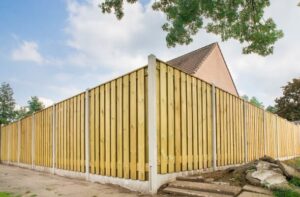Colleges and universities in Quincy, Massachusetts
Quincy, Massachusetts is home to several higher education institutions that serve the educational needs of both local residents and students from across the country. This guide will provide an overview of the colleges and universities located in Quincy, including a bit of history, academics, student life, and other key details about each school.
Quincy College
Quincy College is a two-year community college that offers associate’s degrees and certificate programs.
History
- Founded in 1958 as Quincy Junior College, the school was established to meet the growing need for higher education opportunities on the South Shore.
- It was renamed Quincy College in 1987 when the school began offering bachelor’s degrees.
- Quincy College is accredited by the New England Commission of Higher Education (NECHE).
Academics
- Quincy College confers Associate of Arts, Associate of Science, and Associate of Applied Science degrees.
- Popular majors include liberal arts, business administration, natural & health science, nursing, and computer science.
- The college also offers over 45 certificate programs in fields like medical assisting, early childhood education, and computer networking.
- There are over 100 full-time and adjunct faculty members. The student-to-faculty ratio is 16:1.
- Quincy College has a diverse student body of around 4,500 students, including many non-traditional and international students.
Campus Life
- The Main Campus is located just steps from downtown Quincy Center. It features classroom buildings, computer labs, nursing simulation labs, and administrative offices.
- The Plymouth Campus serves students in the Plymouth area.
- Facilities include the Library Learning Commons, Academic Computer Center, Nursing Lab, Culinary Arts Center, and Professional Center for Education.
- Student activities, clubs, and athletics include Phi Theta Kappa Honor Society, Student Government Association (SGA), intramural and club sports.
Admissions and Tuition
- Quincy College has a rolling admissions policy. The application deadline is one week before classes start.
- Tuition and fees are around $210 per credit for in-state students.
- Financial aid is available and 91% of students receive some form of financial assistance.
Eastern Nazarene College
Eastern Nazarene College (ENC) is a private, Christian liberal arts college affiliated with the Church of the Nazarene.
History
- ENC was established in 1900 by Wilfred Parke in Saratoga Springs, NY. It relocated multiple times before settling in Quincy in 1919.
- ENC was started in order to provide higher education rooted in Christian service for students in the New England area.
- It is one of eight Nazarene institutions of higher education around the country.
Academics
- ENC offers over 60 areas of study in liberal arts and sciences, leading to Bachelor of Arts and Bachelor of Science degrees.
- Popular majors include business, education, graphic design, music, and nursing. Pre-professional programs are also available.
- There are over 75 faculty members. The student-to-faculty ratio is 13:1.
- Total enrollment is around 1,000 full-time students. The average class size is 17 students.
Campus Life
- ENC’s 75-acre campus borders Wollaston Park and overlooks Boston Harbor, providing scenic views and green space.
- Campus facilities include the Cove Academic Center, A.B. Building, Slade Center, and Adams Executive Center. Housing, dining, and fitness centers are also on campus.
- Student activities include ministry groups, music ensembles, student government, intramural sports, and 15 intercollegiate athletic teams.
Admissions and Tuition
- ENC accepts approximately 70% of applicants. The application deadline is August 1.
- Tuition is $35,000 per year. Over 90% of students receive financial aid.
- Students must provide a pastoral reference and sign ENC’s Lifestyle Covenant to enroll.
Curry College
Curry College is a private, 4-year liberal arts-based college located on 131 acres in Milton, MA, just a few miles from Quincy.
History
- Curry College was founded in 1879 as the School of Elocution and Expression in Boston. It was later renamed Curry School of Expression.
- The college moved to its current Milton campus in 1952. It offers a traditional liberal arts curriculum alongside its original speech and communications program.
- Curry College caters to a diverse student body hailing from over 44 states and 20 countries.
Academics
- Curry offers over 80 majors, minors, concentrations, and pre-professional programs through three schools: Arts & Sciences, Nursing & Health Professions, and Continuing & Graduate Studies.
- Popular degree programs include criminal justice, communications, nursing, education, and business. There are also five graduate programs.
- The student-faculty ratio is 13:1 and average class size is 17 students. Over 90% of classes have fewer than 30 students.
Campus Life
- Residential facilities house the majority of students on campus. There are 14 traditional halls and apartment-style housing.
- Student activities include 40+ clubs and organizations, intramural and club sports, performing arts groups, student publications, and an active Student Government Association.
- The campus features the Keith Jordan Student Center, Steiner Performing Arts Center, Student Fitness Center, new Science Center, and renovated Library.
Admissions and Tuition
- Curry College accepts about 74% of applicants. The application deadline is rolling.
- Tuition and fees are $41,000 per year. More than 90% of students receive some form of financial aid.
Laboure College
Laboure College is a private Roman Catholic college focused on nursing and allied health careers.
History
- Laboure was founded in 1892 by the Sisters of Charity of Montreal, also known as the Grey Nuns.
- Originally located in South Boston, it moved to its current location near Wollaston Beach in Quincy in 1946.
- The college is named after Saint Marguerite d’Youville, the founder of the Grey Nuns in Canada.
Academics
- Laboure College offers Associate of Science degrees and certificate programs in Nursing, Radiography, Respiratory Care, Pharmacy Technician, and Medical Assisting.
- There are also Bachelor of Science degree completion tracks for RN nurses.
- Laboure partners with over 200 healthcare providers for clinical placements and has a 9:1 student-faculty ratio.
Campus Life
- Key campus buildings include the Marie de la Providence Building, Theresa Mary Building, Library Learning Resource Center, and newly renovated Nursing simulation labs.
- Student activities include the Student Government Association (SGA), National Student Nurses Association chapter, and intramural sports.
- Housing is available for students at nearby Bayside Residence Hall.
Admissions and Tuition
- Acceptance rate is around 75%. Rolling admissions process.
- Annual tuition is approximately $26,000. Over 85% of students receive financial assistance.
- Students must meet all health and immunization requirements for their program track to enroll.
Roxbury Community College
Roxbury Community College (RCC) is a public, two-year college with a campus in Quincy.
History
- RCC was founded in 1973 and is part of the Massachusetts public higher education system.
- The Quincy satellite campus opened in 1991 to expand access to higher education for residents on the South Shore.
Academics
- RCC Quincy offers general Associate of Arts degree courses and college credit certificate programs.
- Areas of study include liberal arts, business administration, criminal justice, and computer technology.
- There are also English for Speakers of Other Languages (ESOL) programs and adult basic education courses.
Campus Life
- The Quincy campus is located north of Wollaston Beach near Quincy Center.
- It shares facilities with Quincy High School, including classrooms, computer labs, library, and cafeteria space.
- Student services include advising, counseling, veterans support, and tutoring.
Admissions and Tuition
- RCC has an open admissions policy. New students can enroll throughout the year.
- In-state tuition and fees are around $240 per credit. Financial aid is available.
- Students can transfer credits seamlessly to four-year state colleges and universities.
Harvard Extension School
The Harvard Extension School offers open-enrollment courses and degrees for part-time students in Quincy and online.
History
- The Extension School was founded in 1910 to extend Harvard resources to the Greater Boston community.
- It offers a broad selection of courses taught by Harvard faculty members. Over 1,200 courses are available each year.
Academics
- Students can pursue Associate of Arts and Bachelor of Liberal Arts degrees by taking courses in more than 80 subject areas.
- Bachelor’s degree options include field concentrations in computer science, literature, psychology, and more.
- Most courses take place evenings and weekends on Harvard’s campus in Cambridge. Some are also held at satellite locations like Quincy High School.
Admissions and Tuition
- The Extension School has an open admissions policy. The application deadline is one week before classes start.
- Tuition ranges from $300 to $1,500 per course. Financial aid is available.
- Over 20,000 students take courses annually. Classes range in size from 5 to 55 students.
Other Local Options
There are a few other colleges and universities located in the Quincy area:
- Boston College High School – Private, Jesuit all-male preparatory 7-12 high school located in the Adams Shore neighborhood of Quincy.
- Massasoit Community College – Public community college with a satellite site in Canton, just 10 miles from Quincy Center.
- Fisher College – Private baccalaureate college located in Boston’s Back Bay neighborhood, just 6 miles from Quincy.
- Boston Graduate School of Psychoanalysis – Private graduate school for mental health counseling located in nearby Brookline, MA.
Conclusion
Quincy, Massachusetts has a wide variety of higher education options within the city limits and in surrounding towns. Local students can find programs at public, private, two-year, four-year, nonprofit, and for-profit institutions to meet their education needs. Whether seeking vocational certificates, associate’s degrees, bachelor’s degrees, or graduate studies, Quincy offers college access in an affordable and convenient location. The diversity of academic programs also attracts students from across Boston and internationally. These local colleges and universities provide quality post-secondary schooling options coupled with the vibrant culture and history of the Quincy community.
Hours
Monday: 9:00 AM – 5:00 PM
Tuesday: 9:00 AM – 5:00 PM
Wednesday: 9:00 AM – 5:00 PM
Thursday: 9:00 AM – 5:00 PM
Friday: 9:00 AM – 5:00 PM
Saturday: 9:00 AM – 5:00 PM
Sunday: 9:00 AM – 5:00 PM
Contact Us.
Get Solutions For All Fencing Services
Every day from
9:00 — 5:00
Call to ask any question




